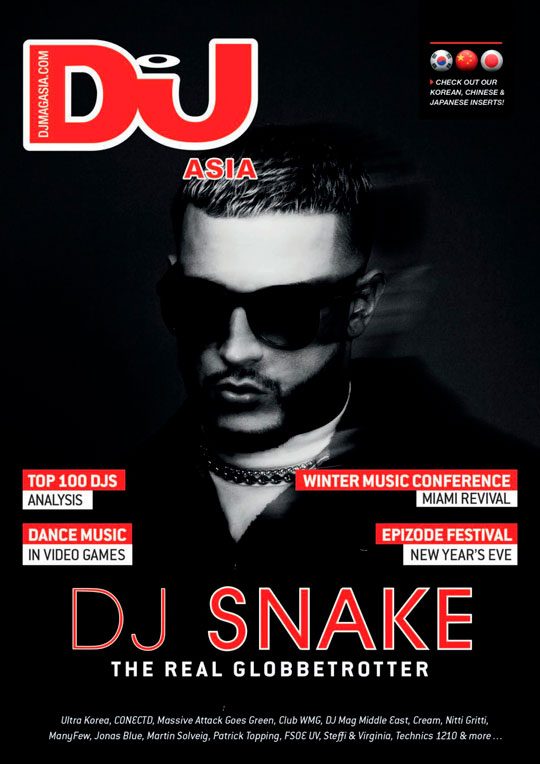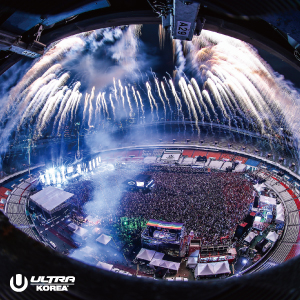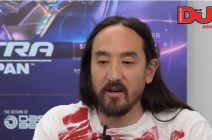English
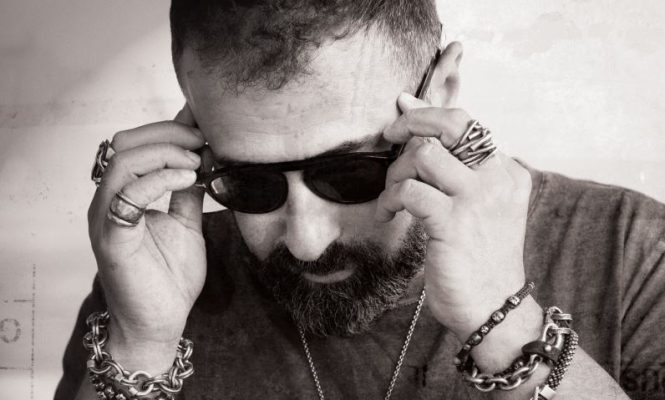
STATELESS
Known as The Baron Of Techno for his numerous contributions to the genre since the early 90’s, Dave Clarke
Words: Hernán Pandelo
Dave Clarke is a stalwart from the scene and the overall electronic industry, unified with the advent of the Internet and technological innovations. His worldview and his records are the result of an acute sensitivity to recognize what happens around him, and they have led him to be at the forefront of electronic music for over 30 years.
ADAPTATION
“My life started to change when I came to live here”, says Dave, sitting with us in DeLaMar Theatre, a unique event location that the Amsterdam Dance Event makes available to artists for a sit-down with journalists like us. Dave moved to the Netherlands’ capital years ago, and he does not regret it: “My life has become more sustainable. It’s a greener city to live in and I enjoy it more. It’s got all the benefits of a big city but within a town. You’ve got an amazing airport. I think, second to Singapore and Hong Kong, Schiphol is my favourite airport in the world. And it’s just twenty minutes from the city. You’ve got trains, trams… Everything works! It’s great to live here. It’s one of the nicest cities I’ve seen and I feel at home.”
Dave has been an advisor for ADE for around eight or ten years and has played out at the event for fourteen years. “I’m really proud of what ADE brings to the city. I’m very proud of the open-minded nature of the city that respects and understands electronic music”, he confides. “It’s an event that gives validity to the scene. It’s in the right place of Europe. Everybody loves coming here! It’s an inspiring city and it takes fifteen minutes to go from one meeting to the next.”
For this edition, he has interesting plans under way. When we speak, he has already been part of three panels, and the following day there will be another, where he will moderate a talk by a sound engineering school where he teaches a few times per week over the year. He also has an interesting interview to conduct. “I’m going to interview Jean-Michel Jarre, something that has me excited and is like a dream to me. He was really important as to how I worked on electronic music in my early years. There was something in his music that was spacial and opened up something in me”, he says proudly. Of course, he also has sessions booked here and there and his own annual event in the ADE at the city’s mythical Melkweg.
The history of electronic music permeates him and he permeates the history of electronic music. “I grew up at a time when everything was forming. There was no internet and music was the messenger. I was nothing to do with what Jean Michel Jarre’s cat was doing or who he was going out with, or which sandwich Vangelis was eating… it wasn’t about that. It was about waiting to hear music, struggling to find it and paying for it! You had to spend money on it and by doing that, you were committed to something. And if it wasn’t for you, you had to sell it and pretend it was good for someone else, and go again with another one”, he assures with nostalgia.
DESECRATION
In 2017, 14 years after his last outing, he released his album ‘The Desecration of Desire’ and this is one of the main reasons for our conversation. Why did he take so long to go back to the full-length format? What happened in between? “If you are not a travelling person you’d think ‘Oh, he moved to Amsterdam and he spent 14 years on doing an album? He must have been smoking a lot’. Obviously that wasn’t the case. My mind changed a lot and the record industry was changing a lot”, he recalls. Amidst a whirlwind of technological innovations, Dave sold his studio to a friend and waited to see what happened. “When I came to Amsterdam, I found out that I could see people and they didn’t have to drive to see me. I could socialize. And also I was waiting to see what was happening with technology at the same time I was figuring out what was happening with the recording industry. So all this things came together and also I’m not one of this people that is really prolific with making music. So I have to wait until I have the inspiration in order to build the studio properly. It took a lot of time to build it”, Dave remembers.
Shifting from an analogue studio to one that incorporates new technologies was not easy. His first attempts at using Ableton were not very satisfactory, so he decided to go with Logic. “So then I got Logic and started to learn how to use it. It was still very buggy and it really wasn’t working very well. Every time I go out for lunch it will crash so you have to reboot it and, in those days, I had lots of plug ins and every time you rebooted Logic it had to scan every single plug in, so I had to go out for another lunch break. But, eventually, we got there and I realized that the main problem of my studio was my computer. So I bought another one and changed a little bit. And ever since then I felt really happy and that was around the time I started thinking on the new album”, explains about the beginnings of his last big project, “The Desecration of Desire”.
“I choose not to discuss the title and the lyrics of the album because I’d like the listener to make their own mind. The only thing I would say is that one of the tracks is called ‘Dot Forty One’ and the reason why is called that way is because is track 5 and if you go 5.41 that’s the time I had the car accident when I came back from Exit Festival. So I think that’s the only thing I would explain for someone who listens to the album”, he explains without going into details about the accident he sustained in July 2016, after performing in Serbia’s Exit festival.
We ask him if we’ll have to wait another 14 years for him to go back to the format and his answer, delivered with his typical brutal honesty, is no surprise. “I don’t think I’ll be alive in 14 years but if I do, for sure I’d still be working. I don’t know”, he shoots and, again, his point of view comes to the front: “I’m not into go into the studio and force things. I don’t need to make music to do something. I want to make music because I want to. I don’t need to feel a release schedule. So, I don’t know. In the last year I haven’t felt the need to be on the studio that much. I just didn’t want to. “I have people asking me to be a politician so you might see me against Kanye in 2020. If he’s still alive… I’m joking. Who knows? At the moment, I feel like I’m stateless. I have plans to write a book at some point. But it’s not going to be a book about the scene itself. I have some sort of distant passion for photography and if I have the time, I’d like to see what I can do with that.”
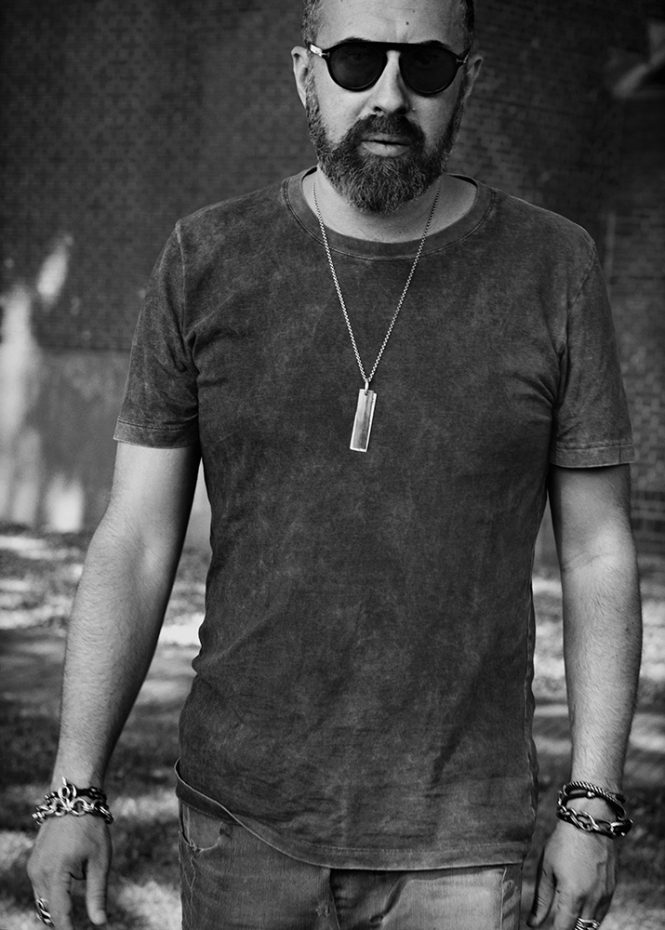
Let’s talk about ASIA! Do you remember the first time you’ve been there?
“Yes, I went to Japan. It was 1994 and I think I was playing in a club called Yellow and I was being looked after a wonderfull lady but I can’t remember her name. And she was always like ‘Do you want to go for sushi?’ and I was ‘oh, please, no’. Because I was a western guy and I thought they were eating raw fishes and everyone was going to die. Actually, to be fair, I wouldn’t eat oyster neither. It took me a long time to come from basic English food to world food. The first time I actually enjoyed Asian food was in Austria, and I thought ‘Fuck it, next time I’m in ASIA I’m doing this shit’.”
What do you find in ASIA the first time?
“One of the things I found really shocking during that first travel was that in your mind you grow up with science fiction and imagery about how Japan is with the bullet train and everything… and when you go there you think ‘wow, this is really outdated’. They have this old American electrical switches, massive American telephones… It’s really quite outdated. And then I realized I really enjoyed Japanese culture by the fact that everyone was polite, everyone have space awareness, no one went into your personal space and I think that is the way people lives on islands. I think English people used to live like that when they were educated… but when you go to Japan, they are! And that felt very good. I also went to Hong Kong for the first time in 1995 or 1996 and I hated the place. I was really sad because I used to go to school with a friend from there and he told me so many exciting stories as kids do to each other. I was amazed about Hong Kong. ‘You can do this, and that’… But then I went to Hong Kong and the promoter didn’t pick me up, I waited for 2 or 3 hours in a shit version of Heathrow airport and the promoter was really rude. I was very shocked and I found a lot of people which I called ‘FILTH’: ‘Failed in London, tried Hong Kong’. People over there was very arrogant and I had one lovely lady looking after me in Hong Kong and she felt very sorry for how I was being treated. And I vowed to myself to never go back to Hong Kong.”
Of course, I’ve been back to Hong Kong a couple of times after and I love it now. I love being there as there’s a special energy there. I enjoy Singapur as well.”
And were you able to experiment the growth of those scenes?
“Japan is changed. A lot! Hong Kong is always the same in some ways because the western population is kind of transient. In Japan, they have a very big interest in fetish which, in this case, is vinyl. Japanese people is very fetishized with vinyl and they will always appear with first editions of vinyl to sign and you have the Tower Records shops and, of course, a lot of the machines were designed in Japan so there was like a homage of people coming from England or Germany to see the attention to details from the Japanese technicians. The thing that changed it was that EDM really started to infect the whole scene the moment the vinyl started to became less and less important to the scene itself. And when that became less important you didn’t have those tastemakers in the record shops recommending stuff. It just became about what was available electronically, and no one gets really attached to, because you don’t buy it, you don’t collect it and you can stream it. And with that happening, the club scene in Japan started to change. It didn’t stayed the same.”
And what about you from that first time until now?
“I love going to Japan and I have a massive admiration for the culture. I feel very happy when I am in Tokyo… Osaka a little bit less but Tokyo definitely. Kyoto is nice… And I never been to the north island. I feel very comfortable to be in Tokyo and I like to say also Hong Kong. Not so much in a professional way, although I played there 2 years ago and it was definitely the best show there ever. But I’ll always enjoy going to Tokyo but the scene for true pioneer electronic music is smaller now, compared to where it was.”
TEACHING CREATIVITY?
“I do not believe that you can teach creativity. I believe you can teach the mind to open itself to creativity. To not second guess yourself, to not be as insecure or to get the insecurity to lead you to be more creative in another way. You can’t teach people to be creative. Its something that’s within them but if they are not sure how to get it out, then hopefully I can help with that.
April 10th, 2019



